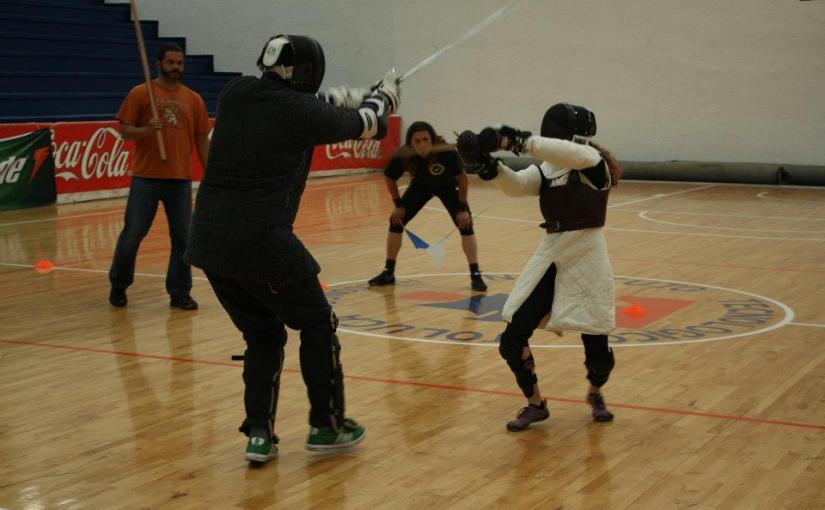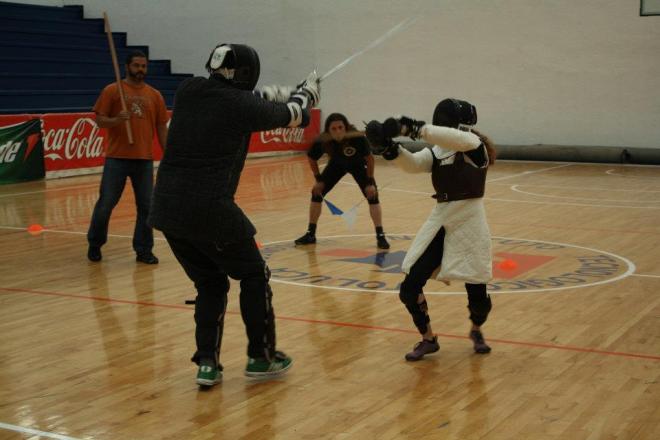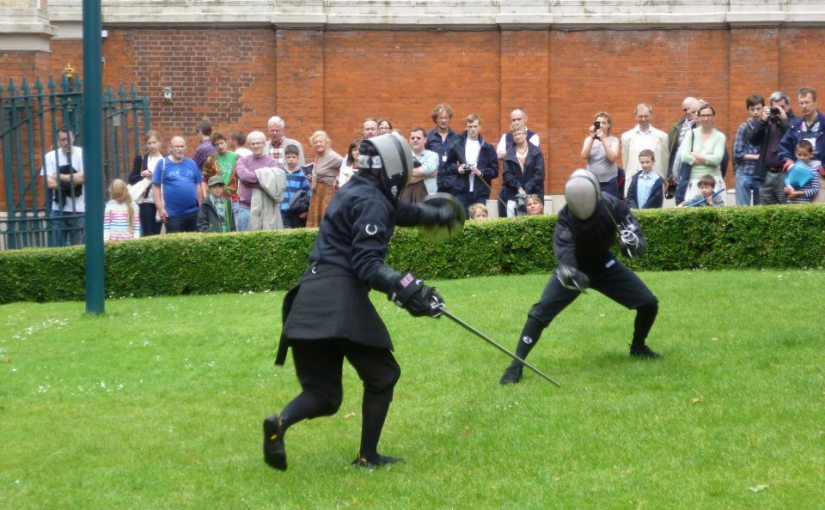By Mariana Lopez R.
The Views of the author does not reflect the views of Esfinges.
One of the very first things I remember asking to the girls at Sphinxes was their opinion on having or not Female tournaments; the answers, as always, were varied.
That being said, I will first talk about some of the arguments I hear favoring the “female only” tournaments, which were (for as far as I can remember) the less mentioned, most of the girls seem to approve the idea just on a partial stance: they agree with female-only tournament categories as long as the mixed ones keep going. Should we have such a special treatment? Once we start talking about special female categories in tournament, we should consider that in order to be fair, we should separate genders in tournaments (only because if girls can have their own category, why wouldn’t guys have theirs also?). But, do we as martial artists actually want that? I will keep this question open for each of you to think while you read the rest of this entry.
“Female tournaments encourage shy girls to participate, and with the time that would make them participate in the mix tournaments once they feel secure”
To me, this is a dangerous way of thinking, I won’t deny this would probably help some girls to participate in a tournament because they would feel “safer”, especially because they think that getting into a mixed category, they would be fighting with boys who can usually hit harder and stronger than girls, at the same time trying to avoid fighting with people who relay mostly in their strength rather than their technique, since it is something more usual amongst the guys (you could have a harder time finding girls with the physique to do so), but this could also mean that there is a misunderstanding of what we do. First of all, if your opponent is attacking you with a weapon, or simply because of the fact that by getting into a fight there is no such thing as “being safe”, at least not perfectly, since what keeps you safe is your capability of defending and attacking your opponent, while keeping yourself alive, and this should apply to any kind of opponent.
Besides, staying in the “comfort zone” is always easier than being in the “danger zone”, and doing this will take us backwards in our training and limit our chances to develop, learn and practice, since we are only reducing the number of fighters we face, which reduces the number of different characteristics we could face in an earnest fight.
“Because that way we avoid sexist comments”
This was a very interesting point that kept me thinking a little (and I bet right now some males are making funny faces…), but this is a true fact, yet I think it’s not so strong on the HEMA environment. Many times and in many places within the martial arts community, girls tend to have some kind of “Acknowledgment” problems, on the outside they might seem to be too manly, rude and an obvious minority that people look as strange, on the inside they are “just girls” which means that if she loses or wins any fight against a male, the usual comment “she’s a girl” as a manner of adjective arrives very often, making her effort seem -less valuable- “ I didn’t use all my strength, she’s a girl, that’s why she won”, “Oh it is obvious she would not win, she fought with a huge guy!” Separate female and male tournaments eliminate this adjective.
But what if we had the chance to make HEMA an exception to those sexist comments around martial arts? From the beginning we learnt and read that it is not about the biggest, it is about the one who knows the most, if we truly believe what the manuals say, or at least we work to prove it, it means that what we believe in is not a size issue, and in consequence we will always respect our opponent, whether he is a male or a female. The HEMA community has been able to keep those kind of comments to a minimum, often a thing of a person rather than a usual way of thinking, and thus it is unusual to treat someone differently because of their gender when the time to fight arrives. Being in the game means that we know its rules: I will try to kick your ass to save mine, so I will treat you as if you were trying to do the same thing. Genders have no role in this way of thinking and we should prove wrong the sexist mentality on the right place: during the fights. If we are getting the right mental attitude, why not keep it? If we are going to be the exception within the martial arts tournaments by not separating males from females, it should not be a bad thing, since some patterns need not be followed.
To make us notice
This point I support slightly, we are not enough to have a decent big Female-only tournament, but if alongside with mixed tournaments there was a female exclusive one (as a separate event, not alongside the mixed one), that might help us stepping up from within the sea of guys and give us a shot at showing ourselves and saying “Hey! We are here too!”. Think of it more like a HEMA selling or promoting strategy, not a sexist event.
“To make fights more balanced”
This I’ve heard equally from both men and women, that we (girls) have a bigger challenge while fighting, since guys tend to believe that they can overcome the lack of technique or skill with the use of pure, brute strength (which can actually be counter producing), and as the time goes by, they tend to incorporate this into their technique. Girls do not have such a thing, since from the beginning we have to force ourselves to rely more on the technique, improving the speed and refining our motions, because a male fighter could shove us away more easily were we not to do so. The difference in build between the male and the female body should not be something to use as a means of comforting oneself after losing a match, nor is it a thing to grieve or consider a disadvantage, but rather use it as an opportunity, since it means that we must use a better technique and apply it at every moment, which means we will be making a good use of the manuals. From the very beginning this makes us try harder to dispose of any bad fighting habits, since the ones that fight by relying on strength rather than technique will have to, eventually, change that way of fighting (if they want to become better, that is). This is something that either in sports or martial arts we should like, because even if it means that it will take longer for us to win, we will eventually do so in a beautiful form! As I sad earlier, our so called “disadvantage” is actually our biggest asset.
Then what about mixed tournaments?
For me there is a simple statement that proves that all of the previous points favoring the gender separated tournament are not good enough. That argument, a single phrase, is at the top of this blog, as written by Hanko Dobringer “If it was not an art, then the strong would always win”, which means that never minding the size, gender, different bone structure, etc., coming from a Martial Arts background we MUST prove that technique (yes, that includes form, footwork, correct blade alignment, etc.) is what matters at the end of the day. Martial arts are not designed to teach you how to fight against “Bib bad guy ex-con no.1” or, maybe worse, “with someone of your size”, they are designed to work by understanding the body, the weapon and the laws of physics (my bro says that geometry too, but what has you, he’s been reading a lot of Destreza manuals lately) and the use of the environmental conditions to your advantage in order to win against anyone and everyone.
For some or for many, the tournaments are a sport side to HEMA, and use it as an argument to bypass a lot of things written in the manuals, and also to separate genders during the events and so on and so forth, but we have to remember that it has a martial art side to it nonetheless, and making gender specific tournaments the usual thing is not the best way to go (because hey, guys are also missing the chance of getting their ass kicked by us ladies). Rather than making this segregation the norm, using it as a sporadic event could have some benefit (as I said before, it is good marketing), but at the end of the day, we should not really want to have this divided as it is in other sports (and martial sports if you want to be more picky with terms).
Thanks a lot to my sexy and most awesome brother by helping me with the proofreading and correcting, as well as with the long words.






